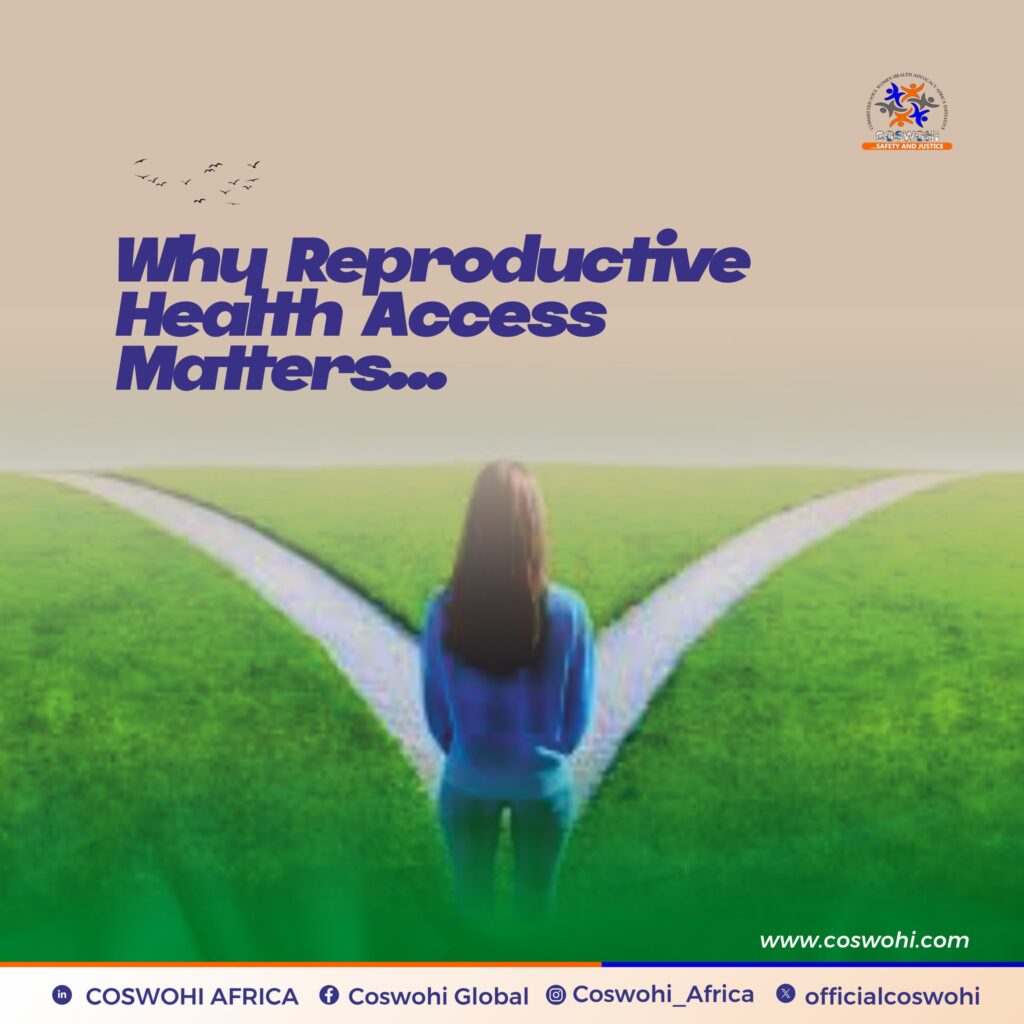
According to the World Health Organization, approximately 800 women die daily from preventable pregnancy- and childbirth-related causes, predominantly in low-resource settings.
𝘼𝙘𝙘𝙚𝙨𝙨 𝙩𝙤 𝙧𝙚𝙥𝙧𝙤𝙙𝙪𝙘𝙩𝙞𝙫𝙚 𝙝𝙚𝙖𝙡𝙩𝙝𝙘𝙖𝙧𝙚 𝙞𝙨 𝙣𝙤𝙩 𝙢𝙚𝙧𝙚𝙡𝙮 𝙖 𝙗𝙚𝙣𝙚𝙛𝙞𝙩—𝙞𝙩 𝙞𝙨 𝙖 𝙛𝙪𝙣𝙙𝙖𝙢𝙚𝙣𝙩𝙖𝙡 𝙣𝙚𝙘𝙚𝙨𝙨𝙞𝙩𝙮 𝙩𝙝𝙖𝙩 𝙥𝙧𝙤𝙛𝙤𝙪𝙣𝙙𝙡𝙮 𝙞𝙣𝙛𝙡𝙪𝙚𝙣𝙘𝙚𝙨 𝙬𝙤𝙢𝙚𝙣’𝙨 𝙡𝙞𝙫𝙚𝙨 𝙖𝙣𝙙 𝙗𝙧𝙤𝙖𝙙𝙚𝙧 𝙨𝙤𝙘𝙞𝙚𝙩𝙖𝙡 𝙤𝙪𝙩𝙘𝙤𝙢𝙚𝙨.
Reproductive health access supports:
– Physical Health: Reducing maternal mortality through timely and quality care.
– Mental Well-being: Alleviating fear, stigma, and psychological burdens.
– Economic Empowerment: Enabling women to pursue education and career opportunities through family planning and health management.
When women have access to comprehensive reproductive healthcare, communities experience enhanced health, economic stability, and social progress.
Join the Dialogue: ᴡʜᴀᴛ ᴀʀᴇ ᴛʜᴇ ᴘʀɪᴍᴀʀʏ ʙᴀʀʀɪᴇʀꜱ ᴛᴏ ʀᴇᴘʀᴏᴅᴜᴄᴛɪᴠᴇ ʜᴇᴀʟᴛʜᴄᴀʀᴇ ɪɴ ʏᴏᴜʀ ᴄᴏᴍᴍᴜɴɪᴛʏ? ꜱʜᴀʀᴇ ʏᴏᴜʀ ɪɴꜱɪɢʜᴛꜱ ɪɴ ᴛʜᴇ ᴄᴏᴍᴍᴇɴᴛꜱ ᴀɴᴅ ʟᴇᴛ’ꜱ ʜᴀᴠᴇ ᴀ ᴍᴇᴀɴɪɴɢꜰᴜʟ ᴄᴏɴᴠᴇʀꜱᴀᴛɪᴏɴ.
“𝙍𝙚𝙥𝙧𝙤𝙙𝙪𝙘𝙩𝙞𝙫𝙚 𝙁𝙧𝙚𝙚𝙙𝙤𝙢 𝙎𝙩𝙖𝙧𝙩𝙨 𝙬𝙞𝙩𝙝 𝙆𝙣𝙤𝙬𝙡𝙚𝙙𝙜𝙚 – 𝘾𝙊𝙎𝙒𝙊𝙃𝙄”